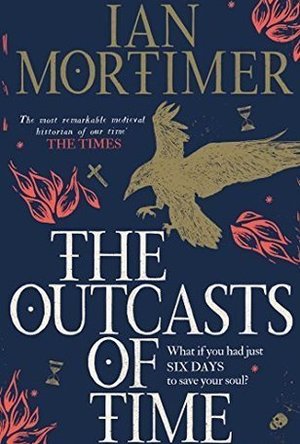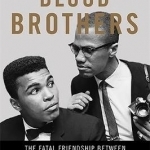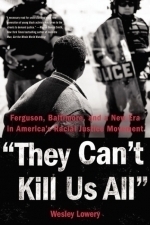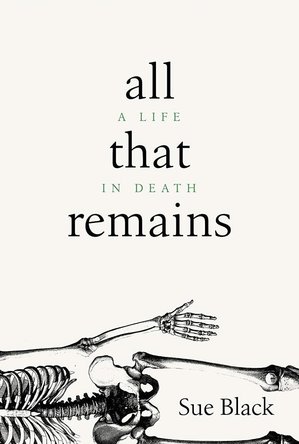
Deadly Secrets (Erika Foster book 6)
Book
On an icy morning, a mother wakes to find her daughter’s blood-soaked body frozen to the road. Who...

The Outcasts of Time
Book
December 1348. With the country in the grip of the Black Death, brothers John and William fear that...

Shakespeare's Champion (Lily Bard, #2)
Book
There's something rotten in Shakespeare... — Lily Bard was running from shattering memories when...

Dead School
Book
There is no death... only a change in worlds It is Valentine's Day at John Hopkin's High, and...

Primordial Threat
Book Watch
The year is 2066 and the world is oblivious to the threat it faces. The fate of humanity lies on...
space science fiction adult fiction
Cody Cook (8 KP) rated A Black Theology of Liberation in Books
Jun 29, 2018
One major issue for Cone is one of authority. The experience of one group of people (the oppressed) becomes equivalent with universal truth, and not simply an important concern in Christian theology. In other words, Cone makes his own experience the judge of who God is and what God is for. While “white” (a term used by Cone not so much to reflect skin color but an oppressor mentality) Christianity commits this grave error without realizing it, Cone does so with full knowledge. So, for instance, while a conservative “white” theologian would say that his own views and actions *should* be directed by the scripture (whether or not he does in fact direct them by this standard), Cone makes the judgement of the oppressed black community the ultimate truth for them– and if mass violence against whites is decided by the group as the best means to effect their liberation, so be it. Cone explicitly distances himself from the approach of King, identifying more with the violence-prone philosophy of the Nation of Islam as propounded by Malcolm X. If someone criticizes his approach, he seems to assume that they’re doing so as a “white” oppressor and should be ignored– an oppressor has no moral right to question the rightness or wrongness of the actions of the people he is oppressing. This of course ignores the criticisms of violence, even from the oppressed, of black Christians like Martin Luther King Jr., Desmond Tutu, etc. Cone is also unfortunately either unfamiliar with or unconvinced by pacifist Christian claims to be committed to peaceful action, since he equates non-violence with inaction and acquiescence. While he is absolutely correct in seeing liberation as an important theme in the Christian faith, he, like “white” religionists, allows his own experience and emotions to determine what is right and wrong to the point of supporting evil in the interest of what he feels is best for his community. However, what can’t be said of Cone’s position on violence is that it is radical, because it is emphatically not. The political heroes of most white Americans are men who used violence to gain political autonomy. Thus, it is not radical for black men and women to look up to figures like Malcolm X and James Cone who advocate doing the same thing if it seems necessary for freedom and self-determination; it is merely status quo. The problem is that Jesus calls all men and women, regardless of color, to rise above the status quo and the myth of redemptive violence.
Seizing on that point, one major problem with Cone’s view of violent revolution is that when oppressed people rise up through violence, they become the oppressor– co-opting the tools of oppression and dehumanization. “Blacks” become “white” through the use of violence. Cone seems unaware of (doubtful) or unaffected by the history of the Bolshevik, Cuban, or French revolutions, wherein the oppressed quickly became the oppressors and became twofold more a child of hell than their oppressors. His view also reshapes Nat Turner, the slave who claimed to have been directed by God to murder white women and children, into an unqualified hero. Cone’s system re-establishes and re-affirms oppression– it does not end it.
For Cone, God is black and the devil is white, because God supports the oppressed and the devil supports the oppressor. But in so closely identifying God with blackness, the actions of those in the black community are now above being questioned, just like the actions of white enslavers were, according to them, above being questioned because they aligned themselves with God and those whom they oppressed with the devil.
What Cone is really trying to get at is that since Jesus supports the cause of the oppressed, the oppressor must so distance himself from his oppressor identity that he becomes indistinguishable from the oppressed– willing to suffer along with them– if he is to be Christ-like. In other words, the “white” must become “black.” Cone says that God can’t be colorless where people suffer for their color. So, where blacks suffer God is black. Taking this logic, which is indeed rooted in Scripture, where the poor suffer, God is poor. Where babies are killed in the womb, God is an aborted baby. Where gay people are bullied, God is gay. It is our obligation to identify with the downtrodden, because that’s what Jesus did. Paul, quoting a hymn of the church about Jesus, puts it this way:
“In your relationships with one another, have the same mindset as Christ Jesus:
‘Who, being in very nature God,
did not consider equality with God something to be used to his own advantage;
rather, he made himself nothing
by taking the very nature of a servant,
being made in human likeness.
And being found in appearance as a man,
he humbled himself
by becoming obedient to death—
even death on a cross!'”
–Philippians 2:5-8
Jesus not only gives up his power to express love to the powerless by identifying with them, He also takes on their sin and suffers with and for them. This is the essence of the gospel, and it often gets lost when we translate it into our daily lives. For Cone, this important truth gets lost in the banner of black militantism and the cycle of violence. For so many American Christians, it gets lost when they reduce the political nature of Christianity to scolding those whose private expression of morality doesn’t line up with theirs. We refuse to identify with sinners (which is a category we all fit into) in love.

Blood Brothers: The Fatal Friendship Between Muhammad Ali and Malcolm X
Randy Roberts and Johnny Smith
Book
In 1962, boxing writers and fans considered Cassius Clay an obnoxious self-promoter, and few...

They Can't Kill Us All: The Story of Black Lives Matter
Book
'A devastating front-line account of the police killings and the young activism that sparked one of...

Enola Holmes and the Black Barouche
Book
A young girl who is empowered, capable, and smart...the Enola Holmes book series convey an impactful...
Bubblesreview (110 KP) rated All That Remains: A Life in Death in Books
Apr 7, 2019
▪ Descriptive
▪ Very fascinating
▪ Surprisingly life-affirming
Cons:
▪ Could be a possible military/trauma PTSD trigger
What an incredible book. When I first picked this up I was sceptical about reading it right now, I thought this was going to be a dark, depressing read about death. It certainly is about death but surprisingly not in a dark or depressing way.
I've been suffering with a bereavement since November after my best friend was killed in a road accident, hit by a drunk driver. I have been struggling quite a bit with this and there doesn't seem to be any support for people struggling with bereavement, there is one local charity that provides free counselling but I'm currently on a 16+ week waiting list before they can even assess me to see if they can help me.
So you can see why I was hesitant to read this, however, after reading some reviews on it i took the risk and dived in. I'm glad I did.
I found this actually very refreshing and life-affirming, it's made me see life and death in a different way and I feel like it's helped me cope a little better whilst I wait for counselling.
The chapter about the authors personal experience with bereavements was nice to be reminded that everyone deals with grief in their own ways, even if it may seem odd to others.
I really enjoyed reading the scientific parts of this book aswell, as detailed as some of it was it was actually really interesting. It was also nice to learn about all the different options available now days for what happens to our bodies. Donating your body to a medical school is one option I wasn't even aware of.
The epilogue was a tear jerker, I admit I struggled to read through those last pages. It was very personal to Blacks family and very detailed about her wishes when her time comes.
I highly respect Black for making such a personal memoir published.
This was an emotional, uplifting, scientific memoir that I highly recommend.

